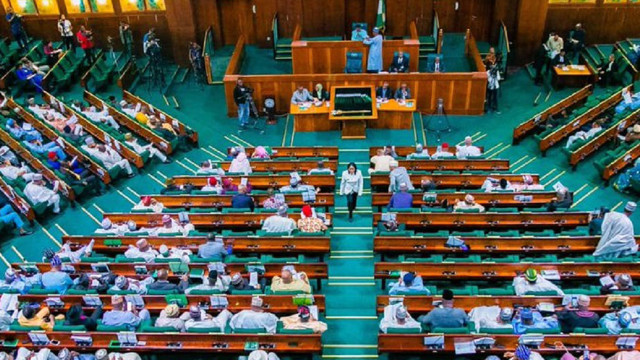Members of civil society organizations (CSOs) have raised alarms about the increasing exploitation of the Cybercrimes (Amendment) Act 2024 to intimidate and harass journalists and activists nationwide.
They observed that security personnel are increasingly employing the law to curtail press freedom and silence dissent, which they argue violates the constitutional rights of Nigerians.
These concerns were voiced during a media and law enforcement agencies situation room organized under the eRIGHTS project, an initiative by Avocats Sans Frontières France (Lawyers Without Borders) with support from the UNESCO Global Media Defence Fund.
The forum brought together journalists, rights advocates, law enforcement representatives, legal experts, and digital advocates to discuss identifying abuses and promoting reforms for enhanced media freedom and digital rights.
Executive Director of the Human Rights Journalists Network, Kehinde Adegboyega, expressed that the current trend is alarming, highlighting that journalists are being arbitrarily arrested, detained without trial, and prosecuted under controversial sections of the law.
The ECOWAS Court, in a ruling dated March 25, 2022, ordered Nigerian authorities to cease using Section 24 of the Cybercrime Act 2015 to prosecute anyone for insulting or stalking public officials online, labeling it arbitrary, vague, and oppressive, and instructing the Nigerian authorities to repeal it in line with human rights obligations.
However, while the Cybercrime (Amendment) Act 2024 has removed Section 24, stakeholders argue that it does not resolve the arbitrary, vague, and oppressive characteristics of the other provisions.
Adegboyega noted that the ongoing use of Section 24, despite the ECOWAS Court ruling invalidating it, shows a lack of respect for judicial authority.
He stated: “We have observed incidents where security agencies, particularly the police, have unjustly arrested a journalist in Lagos and transported him to Abuja without notifying anyone about the arrest or the reason.
It was only after significant public attention that they revealed the journalist’s arrest was based on a petition from someone. Yet, the journalist was never informed about the identity of the petitioner.
“They detain individuals unlawfully, keeping them beyond the time permitted by the Constitution. Imagine holding a journalist for five to ten days without trial. Despite an existing ECOWAS Court ruling nullifying Section 24 of the Cybercrime Act, law enforcement continues to depend on that provision to this day.
“We have seen instances where journalists, even those who have not published any report, are summoned under the pretense of national security. When did holding the government accountable become a threat to national security? “Some are summoned and detained for hours, only to be required to secure a specific administrative bail for their release.
The individual ends up negotiating their freedom in the form of bail. This has become a common practice for the police.
“This poses a significant issue as it appears that other laws regarding defamation and libel have been sidelined while security agencies focus on the Cybercrime Act “For example, how can someone be charged with cyberstalking or cyberbullying the President?
These are some of the irregularities that are steadily becoming accepted.” Africa Policy and Advocacy Manager at Access Now, Naro Omo-Osagie, called for the decriminalization of offenses related to speech.
She noted that the fear of arrest and prosecution has caused unwarranted self-censorship, which may not serve democracy's interests.
Country Director of Avocats Sans Frontières France, Angela Uzoma-Iwuchukwu, remarked that the country is at a crucial point where media freedom and digital rights have become central to national discussions.
She emphasized that media plays a critical role in holding those in power accountable, voicing the concerns of the marginalized, and facilitating informed public discourse.
She expressed distress that journalists frequently encounter challenges in fulfilling their roles, such as harassment, intimidation, and violence.
“The digital era has introduced new challenges, with issues like online censorship, surveillance, and misinformation jeopardizing the very foundation of our democracy.
“It is essential that we cultivate a culture of understanding, respect, and collaboration between the media and law enforcement,” she stated.
Responding on behalf of the security agencies, CSP El-Mustapha Sani, head of the Police Complaints and Response Unit (PCRU), asserted that various measures have been established to protect all citizens, including journalists.
He mentioned that some of these measures include creating social media platforms to facilitate the police's receipt and resolution of complaints against its officers.
He said: “We have personnel available 24/7 to address these issues. The increase in complaints indicates that people have confidence in the police.
“We also receive complaints from police officers. All cases reported to the PCRU are addressed decisively. Recently, many officers were dismissed, others demoted, while several received various disciplinary actions.
The Inspector General has also instructed that the PCRU be established in all 36 states of the federation.”




















